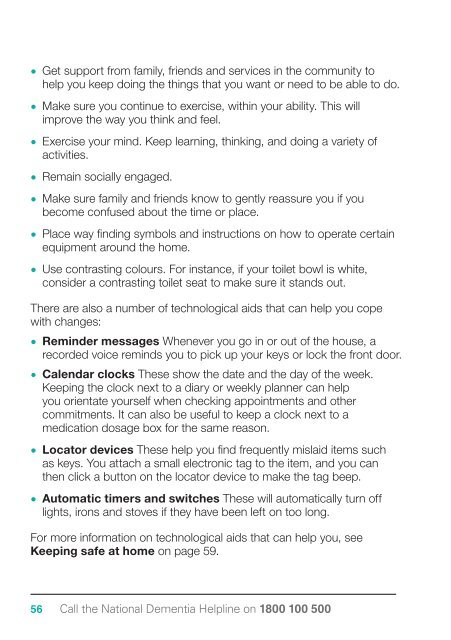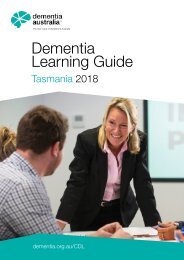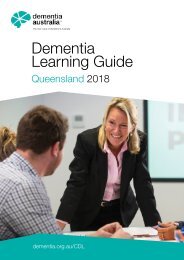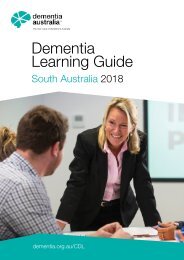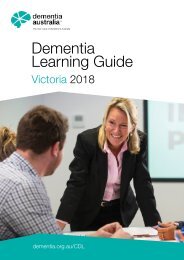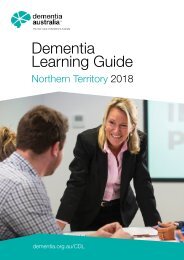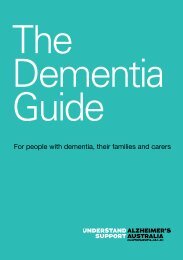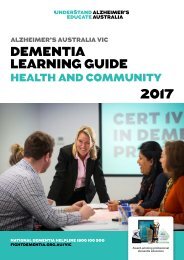Dementia Australia | The Dementia Guide
The Guide will also be used by the family and friends of someone with dementia, as it will contain information for anyone taking on a caring role. It will help people to understand more about dementia and the emotional impact of a diagnosis, the available drug treatments, and support and services that are available. It will include information about living well with dementia and about making plans for the future.
The Guide will also be used by the family and friends of someone with dementia, as it will contain information for anyone taking on a caring role. It will help people to understand more about dementia and the emotional impact of a diagnosis, the available drug treatments, and support and services that are available. It will include information about living well with dementia and about making plans for the future.
Create successful ePaper yourself
Turn your PDF publications into a flip-book with our unique Google optimized e-Paper software.
• Get support from family, friends and services in the community to<br />
help you keep doing the things that you want or need to be able to do.<br />
• Make sure you continue to exercise, within your ability. This will<br />
improve the way you think and feel.<br />
• Exercise your mind. Keep learning, thinking, and doing a variety of<br />
activities.<br />
• Remain socially engaged.<br />
• Make sure family and friends know to gently reassure you if you<br />
become confused about the time or place.<br />
• Place way finding symbols and instructions on how to operate certain<br />
equipment around the home.<br />
• Use contrasting colours. For instance, if your toilet bowl is white,<br />
consider a contrasting toilet seat to make sure it stands out.<br />
<strong>The</strong>re are also a number of technological aids that can help you cope<br />
with changes:<br />
• Reminder messages Whenever you go in or out of the house, a<br />
recorded voice reminds you to pick up your keys or lock the front door.<br />
• Calendar clocks <strong>The</strong>se show the date and the day of the week.<br />
Keeping the clock next to a diary or weekly planner can help<br />
you orientate yourself when checking appointments and other<br />
commitments. It can also be useful to keep a clock next to a<br />
medication dosage box for the same reason.<br />
• Locator devices <strong>The</strong>se help you find frequently mislaid items such<br />
as keys. You attach a small electronic tag to the item, and you can<br />
then click a button on the locator device to make the tag beep.<br />
• Automatic timers and switches <strong>The</strong>se will automatically turn off<br />
lights, irons and stoves if they have been left on too long.<br />
For more information on technological aids that can help you, see<br />
Keeping safe at home on page 59.<br />
56 Call the National <strong>Dementia</strong> Helpline on 1800 100 500


